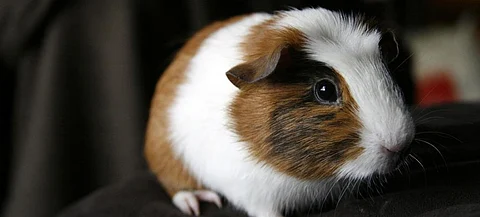

Three India-based organisations are involved in studies to find a vaccine against the novel coronavirus disease (COVID-19). But none are being tested in here as the country does not have animals suitable for such pre-clinical trials.
Vaccines have to go through a series of trials before they are ready for the market. First preclinical trials on animals and then a series of trials on human beings. The animal models used have to be susceptible to the disease so that the efficacy of the vaccine can be determined. It has been seen that most of the usual experimental animals are not affected by the virus. Researchers in Australia have shown that ferrets are a good model for testing the vaccines as they seem to have lung physiology similar to that of humans. The group is using ferrets to test two vaccines developed by University of Oxford and Pennsylvania-based Inovio Pharmaceuticals. Other researchers are reviving the mouse model developed during the SARS epidemic to carry out experiments. At that time, the mice had been modified to carry humanised ACE2 genes. But this revival involves breeding of the animals which is expected to take at least 9 weeks. The lack of suitable experimental animals is said to be the biggest reason that could delay the research on vaccines.
As suitable animals models are not available in India, none of the preclinical trials are being carried out in India. “The pandemic was sudden and we were not prepared with the animals,” says Suresh Pothani, director in charge of the National Animal Resource Facility for Biomedical Research under the ICMR. While India has hamsters; ferrets or the modified mice are not available. “Bharat Biotech had approached us for preclinical studies but we did not have the animals,” says Pothani. Now these are being carried out in University of Wisconsin-Madison. The same is true for the vaccine developed by Serum Institute of India and Codagenix, Inc. is also being tested in the USA. Pothani reveals that the institute has requested the secretary to import the animals to ensure future studies.
India has invested in creating facilities for carrying out research on animals. The Committee for the Purpose of Control and Supervision of Experiments on Animals (CPCSEA), established under the Prevention of Cruelty to Animals Act 1960 has registered 1748 supplier establishments including government organisations from where researchers can get experimental animals. These animals include mice, hamsters, rabbits, guinea pigs along with transgenic animals. The animal trials are governed by the Breeding of and experiments on animals (Control and Supervision) Rules, 1998 which were last amended in 2006.
Maintaining these facilities is important as the new drugs and clinical trials rules 2018 mandates that pre-clinical tests are carried out on both rodents and non rodents (dogs and monkeys) before moving on to human trials. It is said that animal testing in India is very difficult because of strict animal rights rules implemented by CPCSEA. To avoid these, Pharma companies prefer to conduct them outside the country. Fortunately for them, the new drugs and clinical trials rules 2018 accept animal trials done outside the country.
But it is important now to improve these facilities now. Experts fear that if clinical trials are outsourced, the resultant drugs and vaccines might not be available easily in India. Since moving to the product patent regime, very few new products have been developed in India. In case of vaccines, one example of success is the development of Hepatitis B vaccine by Shantha Biotechnics which used a novel technique to develop the vaccine and could reduce the price to less than $1/dose.
The government is also exploring technologies such as organs-on-a-chip to reduce the harm to animals. This would ensure that animals are used only when absolutely necessary. The United Kingdom and the United States have national road maps for developing non-animal technologies. Denmark, Brazil, Germany, Switzerland, Australia, China and Korea also have research programmes for developing alternative technologies. PETA has listed some technologies that researchers are using to avoid use of animals. In an article published on their site on April 9, they give an example of researchers at the University of Bristol in England who are growing the virus in cells to gain a better understanding of the way it spreads and causes sickness.
This would require an overhaul of the drug-approval process in India to remove the clause about animal testing.